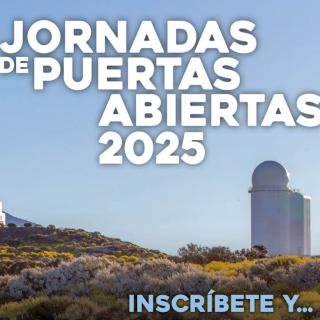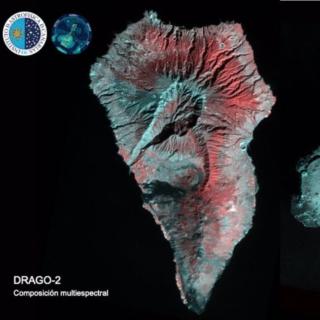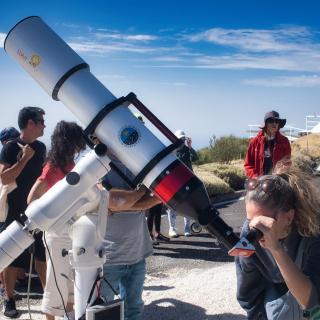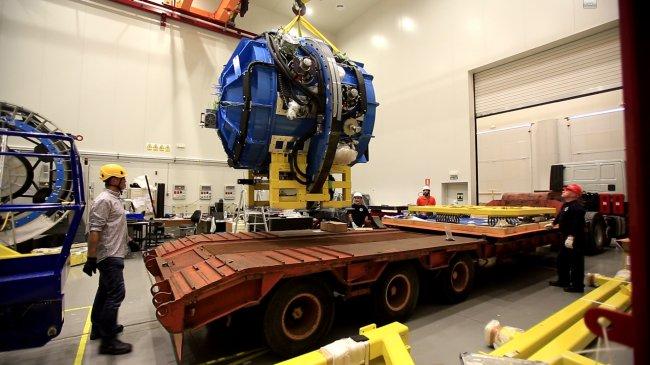It may interest you
-
 The Instituto de Astrofísica de Canarias (IAC) invites the public to visit the Teide Observatory (Izaña, Tenerife) during the weekend of 21 and 22 June, coinciding with the week of the summer solstice. The activity is part of its Open Days, a free science outreach initiative organised by the Observatory itself together with the IAC's Scientific Communication and Culture Unit (UC3). Over two days, those attending will be able to tour some of the most important scientific facilities at the centre, learn how they work from the technical and research staff, and make live solar observations. EachAdvertised on
The Instituto de Astrofísica de Canarias (IAC) invites the public to visit the Teide Observatory (Izaña, Tenerife) during the weekend of 21 and 22 June, coinciding with the week of the summer solstice. The activity is part of its Open Days, a free science outreach initiative organised by the Observatory itself together with the IAC's Scientific Communication and Culture Unit (UC3). Over two days, those attending will be able to tour some of the most important scientific facilities at the centre, learn how they work from the technical and research staff, and make live solar observations. EachAdvertised on -
 The Instituto de Astrofísica de Canarias (IAC) has started its development of DRAGO-3 , the third generation of its instrument: Demonstrator for Remote Analysis of Ground Observations (DRAGO), designed for Earth observation from space in the short wave infrared region of the spectrum (SWIR). This new instrument comes after the success of DRAGO-1 and DRAGO-2 , which have proved their utility in key applications such as following volcanic eruptions, hydrological monitoring of regions affected by climate change, and the control of forest fires. Both the previous models have shown theirAdvertised on
The Instituto de Astrofísica de Canarias (IAC) has started its development of DRAGO-3 , the third generation of its instrument: Demonstrator for Remote Analysis of Ground Observations (DRAGO), designed for Earth observation from space in the short wave infrared region of the spectrum (SWIR). This new instrument comes after the success of DRAGO-1 and DRAGO-2 , which have proved their utility in key applications such as following volcanic eruptions, hydrological monitoring of regions affected by climate change, and the control of forest fires. Both the previous models have shown theirAdvertised on -
 El IAC colabora por segundo año consecutivo con el festival de música y tendencias de Puerto de la Cruz con actividades gratuitas que permitirán a los asistentes descubrir el Observatorio del Teide y observar el Sol con telescopios especializados. El Instituto de Astrofísica de Canarias (IAC) se suma nuevamente al Phe Festival , que celebra su décimo aniversario los días 5 y 6 de septiembre en Puerto de la Cruz, con un programa de actividades destinadas a acercar la Astronomía y la investigación científica al público general. La iniciativa forma parte de IAC POP, la estrategia de divulgaciónAdvertised on
El IAC colabora por segundo año consecutivo con el festival de música y tendencias de Puerto de la Cruz con actividades gratuitas que permitirán a los asistentes descubrir el Observatorio del Teide y observar el Sol con telescopios especializados. El Instituto de Astrofísica de Canarias (IAC) se suma nuevamente al Phe Festival , que celebra su décimo aniversario los días 5 y 6 de septiembre en Puerto de la Cruz, con un programa de actividades destinadas a acercar la Astronomía y la investigación científica al público general. La iniciativa forma parte de IAC POP, la estrategia de divulgaciónAdvertised on
